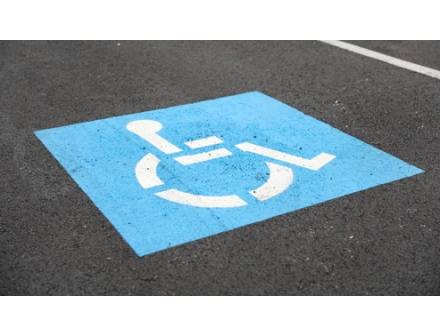 Polish,
Polish,  Ukrainian,
Ukrainian,  Russian,
Russian,  Hindi,
Hindi,  Spanish,
Spanish,  French and
French and  Greek.
Greek.
Ensuring HOA and Condo Association Compliance with ADA Laws
 One important aspect of managing condominium associations and homeowners associations (HOAs) in Illinois means ensuring compliance with legal responsibilities under applicable federal laws. The Americans with Disabilities Act (ADA), which requires certain public spaces to provide accessibility requirements for individuals with disabilities, might appear at first glance not to apply to condo associations and HOAs. However, depending on the community’s use of the property, the ADA may apply. If it does, it could create specific obligations for Illinois HOAs and condominium associations.
One important aspect of managing condominium associations and homeowners associations (HOAs) in Illinois means ensuring compliance with legal responsibilities under applicable federal laws. The Americans with Disabilities Act (ADA), which requires certain public spaces to provide accessibility requirements for individuals with disabilities, might appear at first glance not to apply to condo associations and HOAs. However, depending on the community’s use of the property, the ADA may apply. If it does, it could create specific obligations for Illinois HOAs and condominium associations.
Understanding your obligations is essential to protecting both your community and your organization from liability. An experienced Arlington Heights, IL condominium and homeowner association attorney can help you determine whether you must comply with the ADA and avoid costly violations and lawsuits.
When Does the ADA Apply to Condo or Homeowners Associations?
The ADA primarily applies to public spaces, not private housing. As a result, in most cases residential buildings and common areas used exclusively by residents are not covered by the ADA. However, if any portion of the property is open to the public, such as a clubhouse, pool, meeting room, or sales office, the ADA likely applies. This means that if your HOA or condo association allows public access to amenities, hosts community events open to non-residents, or leases space to outside organizations, you may have to comply with ADA standards for accessibility.
What Does the ADA Require for Common Areas?
When the ADA applies, Illinois associations must ensure their facilities meet accessibility standards. Facilities built before 1992 must be modified for compliance if "easily accomplished without much difficulty or expense," while newer facilities must already meet current standards. This includes providing accessible parking spaces, entrance ramps, accessible restrooms, and barrier-free paths to amenities. Swimming pools subject to ADA must have accessibility features like pool lifts or sloped entries. Meeting rooms and event spaces need accessible seating areas and assistive listening systems when requested.
Are There Additional Disability Compliance Requirements for Associations?
Even when the ADA does not apply to your association, keep in mind that other laws may require you to provide certain accommodations for people with disabilities. While the ADA focuses on public access, the Fair Housing Act (FHA) and Illinois Human Rights Act (IHRA) require HOAs and condo associations to allow reasonable accommodations and modifications in residential areas for individuals with disabilities. This includes allowing residents to have service animals even when pets are not allowed, adjusting certain policies to accommodate people with disabilities, and permitting owner installation of ramps or other structures that assist with accessibility.
Call an Arlington Heights, IL Condo and Homeowners Association Lawyer
ADA compliance involves complex technical standards and legal requirements. If your association faces potential ADA obligations, or if you want to ensure that you do not have to comply with the ADA, you should consult with the experienced Cook County, IL condo and homeowners association attorneys at Dickler, Kahn, Slowikowski & Zavell, Ltd.. Call us at 847-593-5595 to set up a consultation.















